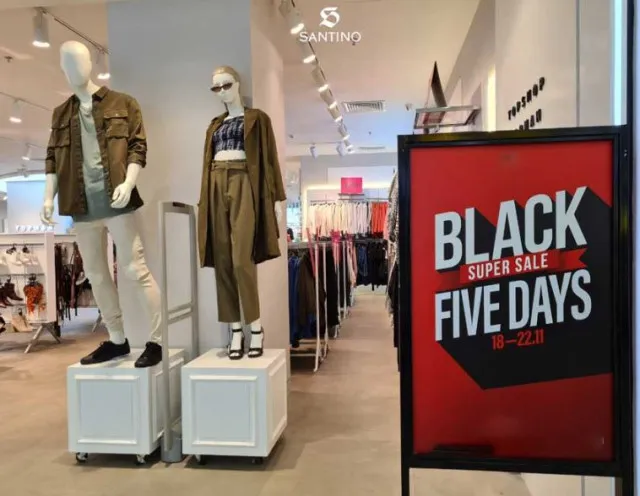Thanksgiving is just around the corner, bringing family gatherings and feasts.
For millions of Americans, the next day marks the frenzy of Black Friday.

This shopping event has become synonymous with massive discounts and crowded stores. But have you ever wondered why it’s called Black Friday? Let’s uncover the history behind this iconic day.
What is black friday?
Black Friday is one of the busiest shopping days in the United States.
Shoppers rush to find deals on tech, fashion, and home goods.

While sales often last the entire month of November, the main day remains highly anticipated.
Retailers offer significant discounts, creating excitement among bargain hunters nationwide.
The first use of the term ‘Black Friday’
The term ‘Black Friday’ originated long before it described shopping.
In 1869, it referred to a financial crisis involving Wall Street financiers Jay Gould and Jim Fisk.

The duo conspired to corner the gold market, causing chaos when their plan unraveled.
On September 24, 1869, the stock market collapsed, leaving many bankrupt.
This dark day in financial history was the first to be labeled ‘Black Friday.’
How Black Fridat became a shopping phenomenon
The connection between Black Friday and shopping began in Philadelphia.
In the mid-20th century, police officers used the term to describe the day after Thanksgiving.
The influx of tourists and shoppers caused traffic jams and chaos as people began their Christmas shopping.
By the 1980s, the term had spread across the U.S. and gained a new meaning.
Why is it called ‘Black Friday’?

Retailers redefined ‘Black Friday’ to signify turning a profit for the year.
Before this day, stores were often said to be operating “in the red,” meaning at a loss.
On Black Friday, profits soared, putting businesses “in the black.”
This reinterpretation transformed Black Friday into a positive, highly commercialized event.
The idea that Black Friday is the biggest shopping day of the year is somewhat exaggerated.
For many retailers, the last Saturday before Christmas often sees higher sales.
However, Black Friday remains a symbol of consumer enthusiasm and retailer success.
The term ‘Black Friday’ has evolved from its grim financial origins to represent a day of shopping excitement.
Whether hunting for deals or avoiding the chaos, its history is as fascinating as the day itself.
Are you planning to shop this Black Friday, or will you let the sales pass you by?